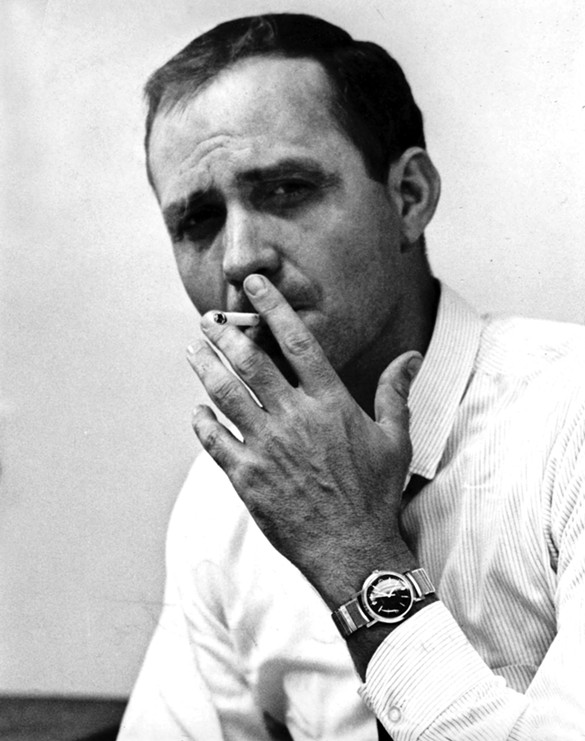I. AMONG THE JOURNALIST ANTS
In 1964, in the midst of so-called Swinging London, Charles McColl Portis had Karl Marx’s old job. Portis (who turns seventy this year) was thirty at the time, not yet a novelist, just a newspaperman seemingly blessed by that guild’s gods. His situational Marxism would have been hard to predict. Delivered into this world by the “ominous Dr. Slaughter” in El Dorado, Arkansas, in 1933, Charles Portis—sometimes “Charlie” or “Buddy”—had grown up in towns along the Arkla border, enlisted in the Marines after high school and fought in the Korean War. Upon his discharge in 1955, he majored in journalism at the University of Arkansas (imagining it might be “fun and not very hard, something like barber college”), and after graduation worked at the appealingly named Memphis Commercial Appeal. He soon returned to his native state, writing for the Arkansas Gazette in Little Rock.
He left for New York in 1960, and became a general assignment reporter at the now defunct New York Herald-Tribune, working out of what has to be one of the more formidable newsroom incubators in history—his comrades included Tom Wolfe (who would later dub him the “original laconic cutup”) and future Harper’s editor Lewis Lapham. Norwood’s titular ex-Marine, after a fruitless few days in Gotham, saw it as “the hateful town,” and Portis himself had once suggested (in response to an aspersion against Arkansas in the pages of Time), that Manhattan be buried in turnip greens; still, he stayed for three years. He apparently thrived, for he was tapped as the Trib’s London bureau chief and reporter—the latter post held in the 1850s by the author of The Communist Manifesto (1848). (More specifically, his predecessor had been a London correspondent for the pre-merger New York Herald.) Recently, in a rare interview for the Gazette Project at the University of Arkansas, Portis recalls telling his boss that the paper “might have saved us all a lot of grief if it had only paid Marx a little better.” [1]
Indeed, as Portis notes in his second novel, the bestselling True Grit (1968), “You will sometimes let money interfere with your notions of what is right.” If Marx had decided to loosen up, Portis wouldn’t have gone to Korea, to serve in that first war waged over communism, and (in the relentless logic of these things) wouldn’t have put together his first protagonist, taciturn Korea vet Norwood Pratt, in quite the same way. Perhaps the well would have run dry—fast. Instead of writing five remarkable, deeply entertaining novels (three of them surely...
You have reached your article limit
Sign up for a digital subscription and continue reading all new issues, plus our entire archives, for just $1.50/month.
Already a subscriber? Sign in





